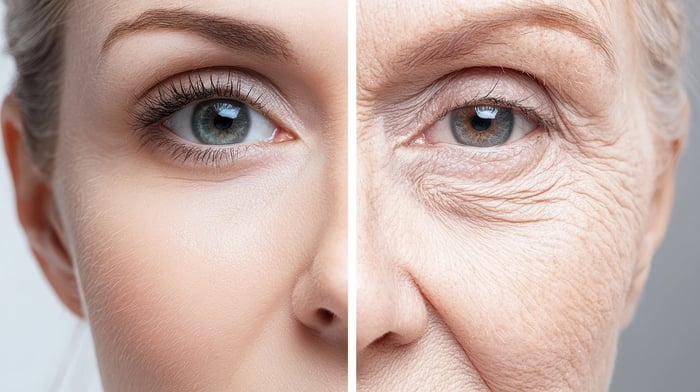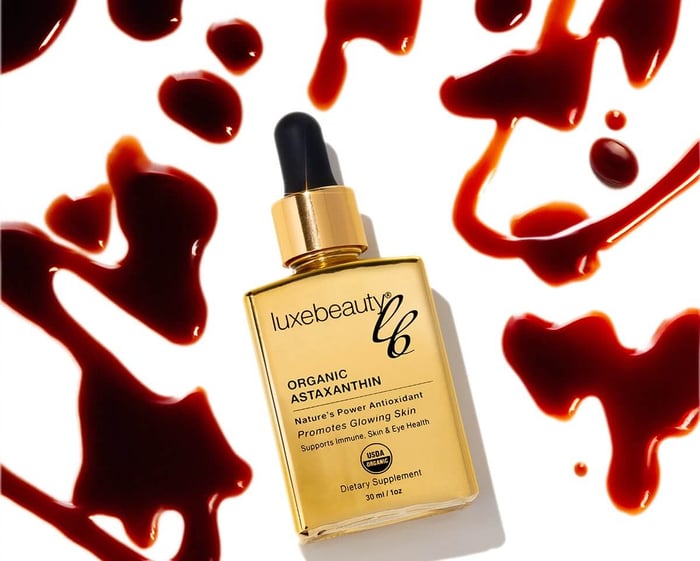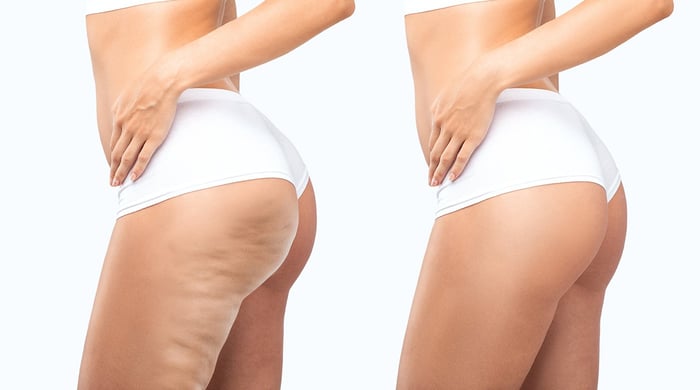For years, we’ve been taught to fear the sun. The Sun is bad for your skin. Stay out of the sun and you better lather on sunscreen. Lets dive deep into skin biology to understand "Is the Sun Bad for Your Skin'?
Wrinkles, skin cancer, premature aging — mainstream beauty and dermatology industries have pushed a message that sunlight is dangerous. But what if we’ve been told only half the story — and lost sight of how sunlight interacts with our skin biology?
What if the real problem isn’t sunlight… but the way we interact with it — and the oxidative stress caused by poor skincare, poor diet, seed oils, and incomplete light?
Let’s unpack the full truth.
The Famous Truck Driver Photo: Misinformation in Motion
You’ve probably seen the infamous image of a truck driver with one side of his face dramatically aged. The message? Sunlight caused this damage. But here’s what that photo doesn’t explain:
He wasn’t getting full sunlight exposure.
He was exposed to UV-A light only, through glass.
He received no UV-B or infrared, which are essential parts of full-spectrum sunlight.
Glass blocks UV-B (responsible for vitamin D synthesis) and infrared (deep tissue healing and mitochondrial support). The result? Incomplete, imbalanced light exposure — and oxidative damage.
Sunlight isn’t the enemy. Distorted light without biological context is.
Full-Spectrum Light vs. Partial Light: Why It Matters
True sunlight includes:
UV-B: Triggers vitamin D production and immune signaling
UV-A: Can contribute to aging — but in balance with UV-B and antioxidants, it’s manageable
Infrared (IR-A): Promotes healing, reduces inflammation, and supports mitochondrial health
Visible Light & Biophotons: Regulate circadian rhythm, hormone function, and neurotransmitter balance
When you strip sunlight down to only UV-A (like behind glass or in tanning beds), you’re exposing skin to a damaging fraction of the spectrum without its natural protective elements.
Your Skin Is a Light Receptor
Your skin isn’t just a passive barrier. It’s a dynamic, light-interfacing organ — and part of a much larger biological system.
Your skin biology is built to read light and respond through hormonal, neurological, and mitochondrial pathways. It contains:
Photoreceptors that respond to full-spectrum light
Biophotons, the light-based communication between cells
Mechanisms to regulate circadian rhythm, hormone balance, neurotransmitters, and immune health
Exposure to morning sunlight, unfiltered through glass or sunscreen, tells your body:
“It’s time to make serotonin.”
“It’s time to wake up and activate immune cells.”
“It’s time to produce vitamin D and nitric oxide.”
Sunlight is a biological cue — not a cosmetic enemy.
The Forgotten Benefits of Bare Skin in the Sun
To receive the full benefits of sunlight, your skin must be bare — not covered in sunscreen, makeup, or synthetic skincare ingredients that interfere with light absorption.
When bare skin interacts with full-spectrum light, your body can:
Synthesize vitamin D3 — a hormone-like nutrient critical for immunity, bone health, and gene expression
Produce nitric oxide, improving blood flow and reducing inflammation
Activate the mitochondria (your cells’ energy centers), enhancing cellular repair
Stimulate fibroblasts, promoting collagen synthesis and tissue regeneration
Regulate melatonin and serotonin, improving sleep, mood, and hormone function
This isn’t just about glow — it’s about longevity, vitality, and aligned skin biology.
Why Synthetic Vitamin D Isn’t the Same As Vitamin D From the Sun
You can’t mimic sunlight in a capsule.
Vitamin D synthesized from sun exposure is bioavailable, self-regulating, and accompanied by cofactors like cholesterol sulfate and nitric oxide — none of which are produced by supplements.
Oral vitamin D may raise serum levels, but it’s not a substitute for the hormonal cascade triggered by full-spectrum light.
In short: the sun isn’t optional. It’s essential.
A Forgotten History of Sunlight Healing
In the early 20th century, Dr. Auguste Rollier, a Swiss physician, pioneered heliotherapy — the therapeutic use of sunlight — at his clinic in Leysin, Switzerland.
Patients would spend their days sunbathing on open-air terraces high in the Alps. His results were remarkable:
☀️ Rollier successfully treated thousands of patients with conditions like lupus vulgaris (tuberculosis of the skin), rickets, wounds, and chronic infections — all through carefully dosed, progressive sun exposure.
Even hospitals once had sun balconies, and doctors routinely told mothers to bring their babies outside every morning. Before antibiotics, sunlight was medicine.
We’ve forgotten what our ancestors knew: The sun is not the enemy. It’s nourishment — when used wisely.
The Real Problem: Oxidative Stress
Sun-related skin damage doesn’t come from light alone. It comes from unprotected exposure in a state of oxidative vulnerability caused by:
Diets high in inflammatory seed oils (rich in linoleic acid)
Skincare made with unstable oils and synthetic irritants
A depleted antioxidant defense system — your body’s natural resilience mechanism
In this state, sunlight becomes damaging not because of the light, but because your skin biology is overwhelmed and unsupported.
How to Support Your Skin in the Sun
1. Build Your Antioxidant Defense System
Your skin has its own biological defense network. It produces glutathione, catalase, and superoxide dismutase as part of your endogenous antioxidant defense system — but modern life depletes these internal antioxidants.
Support with Exogenous Antioxidants. Consume High ORAC Antioxidants everyday.
Organic astaxanthin (shown to reduce UV-induced collagen breakdown)
Polyphenols from herbs (clove has the highest ORAC value), cacao, and berries
Whole-food vitamin C
2. Avoid Inflammatory Seed Oils
Linoleic acid from sunflower, safflower, canola, and corn oils oxidizes rapidly — especially in sunlight — and integrates into your skin’s lipid matrix, weakening your barrier.
At Luxe Beauty, we never use cheap seed oils — only cold-pressed, antioxidant-rich botanicals that support your skin biology.
3. Honor the Timing of Light
Expose your skin to morning sunlight — without sunscreen, through no glass. Just a few minutes tells your body: “You’re safe. It’s time to glow.”
This resets your circadian rhythm, improves serotonin, and stimulates mitochondrial repair.
4. Topical Support with the Right Lipids
Use skincare that strengthens your barrier and supports light interaction — not light blocking.
Luxe Beauty’s Glow Power Serum is formulated to work with the sun, not against it. It includes:
Organic astaxanthin, a powerful carotenoid that supports collagen and reduces UV stress
Organic Clove- The highest ORAC ( (Oxygen Radical Absorbance Capacity) antioxidant among food. Ground cloves have been reported to have an ORAC score of 314,446, which is significantly higher than many other foods like broccoli (3,083).
Rosehip fruit oil (not seed), rich in barrier-supportive vitamins
Cold-pressed raspberry seed oil, known for natural UV-protective properties
Organic jasmine oil and gamma-oryzanol — botanicals once used by ancient Egyptians for sun protection
These ingredients buffer oxidative stress, support fibroblast activity, and align with your skin biology’s natural light intelligence.
Final Thoughts: Reclaiming Our Relationship With the Sun.
We don’t live on a dark planet by accident.
Sunlight isn’t a mistake — it’s a master regulator of skin biology, mitochondrial health, mood, immunity, and collagen.
You weren’t meant to hide from the sun.
You were meant to interface with it — wisely, intentionally, and beautifully.
At Luxe Beauty, we don’t create skincare to block biology.
We create rituals that support your body’s original brilliance.
✨ The sun isn’t your enemy and now you know the sun is not bad for you. Fear is.
Let your glow rise with the light.
Sources:
Chevalier G et al. (2017) The Biophysics of Sunlight and Human Health
Stahl W, Sies H. (2012) Astaxanthin: Powerful Antioxidant Protects Against UV Damage
Weller R. (2009) Sunlight Has Cardiovascular Benefits Independently of Vitamin D
Rollier A. (1916) Heliotherapy: Medical Use of Sunlight in Switzerland (via Wellcome Collection







